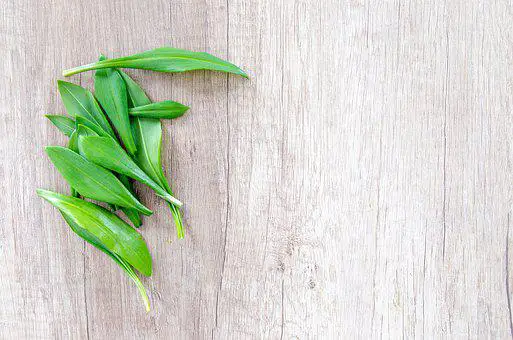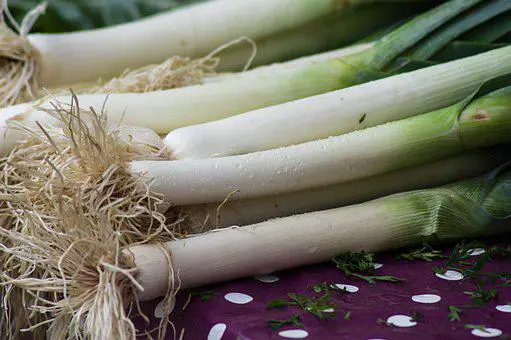Leeks are a vegetable that is part of the allium family. They are often used in lunch recipes because they add flavor and nutrients. But are leeks low FODMAP? Let’s take a closer look.
Are Leeks Low FODMAP?
FODMAP is an acronym that stands for fermentable oligo-, di-, monosaccharides, and polyols. These are short-chain carbohydrates that are poorly absorbed in the small intestine. When they are not properly absorbed, they travel to the large intestine where they are fermented by bacteria. This fermentation process can lead to the production of gas and bloating.
So, are leeks low FODMAP? The answer is yes! Leeks are a low FODMAP food. This means that they are unlikely to cause symptoms of gas, bloating, and abdominal pain in people with IBS.

Can You Eat Leeks On FODMAP Diet?
Leeks are a great vegetable to eat on the FODMAP diet. They are versatile and can be used in a variety of recipes and dishes. Here are some ideas on how to incorporate leeks into your diet:
- Use leeks as a substitute for onions in recipes.
- Add leeks to soups and stews.
- Sauté leeks and serve as a side dish.
- Make a frittata or quiche with leeks.
6 Benefits Of Leeks Low FODMAP
Aside from being low FODMAP, leeks offer a number of other health benefits. Here are six reasons to add leeks to your diet:
1. Leeks Are A Good Source Of Fiber
They are a good source of fiber. This nutrient is important for digestive health and can help to keep you regular. Fiber also helps to bulk up stools, which can make them easier to pass.
2. They Are Rich In Vitamins And Minerals
Leeks provide you with a good amount of vitamins and minerals. They are especially rich in vitamin K, which is important for bone health. Leeks are also a good source of folate, iron, and manganese just like Figs do.
3. Leeks Contain Antioxidants
Leeks are a source of antioxidants. These nutrients help to protect cells from damage and can reduce the risk of some chronic diseases.
Some of the antioxidant compounds found in leeks include quercetin, kaempferol, and allicin.
4. They Can Help Boost Your Immune System
The antioxidants in leeks can help to boost your immune system. Additionally, vitamin C is important for immune health and leeks are good in this nutrient.
Vitamin C helps to stimulate the production of white blood cells, which are important for fighting infection.
5. Leeks May Help Lower Cholesterol Levels
Cholesterol is a type of fat that is found in the blood. Too much cholesterol can lead to heart disease.
Some studies have shown that leeks may help to lower cholesterol levels. This effect is thought to be due to the presence of antioxidants and fiber in leeks.
6. They May Help Reduce The Risk Of Some Cancers
Leeks help to reduce the risk of some cancers. The antioxidants present in leeks are thought to play a role in this effect and may help to protect cells from damage.
Also, leeks may help to reduce the risk of including ovarian cancer and colon cancer.
4 Side Effect Of Leeks
While leeks are generally safe and offer many health benefits, there are a few potential side effects to be aware of.
Here are four possible side effects of eating leeks:

1. Allergic Reaction
Allergic reactions to leeks are rare but they can occur. Symptoms of an allergic reaction may include itching, swelling, and difficulty breathing. If you are allergic to leeks, it is important to avoid them and seek medical attention if necessary.
2. Upset Stomach
Eating large amounts of leeks can cause an upset stomach. This is because they are high in fiber. If you are prone to digestive issues, it is best to eat leeks in moderation.
3. Blood Sugar Spike
Leeks can cause a spike in blood sugar levels. This is due to their high starch content. If you have diabetes or are watching your blood sugar levels, it is best to eat leeks in moderation.
4. Gas And Bloating
As mentioned earlier, leeks are a source of FODMAPs. This means that they can cause gas and bloat in some people. If you are sensitive to FODMAPs, it is best to avoid leeks or eat them in small amounts.
To conclude, leeks are a healthy vegetable that offers many benefits. However, there are a few potential side effects to be aware of. If you are allergic to leeks, have an upset stomach, or are sensitive to FODMAPs, it is best to avoid them. Otherwise, enjoy them in moderation as part of a healthy diet.
How To Prepare Leek With Low FODMAP?
There are many ways to enjoy leeks on a low FODMAP diet. Here are some ideas:
- Sauté them in olive oil or butter with garlic-infused oil and other vegetables like carrots, zucchini, and tomatoes.
- Add them to soups, stews, or casseroles.
- Roast them in the oven with other vegetables.
- Enjoy them raw in a salad.
- Bake them into savory dishes like quiche or pie.
When cooking with leeks, be sure to wash them well and slice them thinly similar to lemon. You can also cook them whole if you are roasting or baking them.
Ingredients
- Leeks
- Olive oil or butter
- Garlic-infused oil
- Carrots
- Zucchini
- Tomatoes
- Soups
- Stews
- Casseroles
- Quiche
- Pie
- Salad
- Savory dishes
Instructions
The instruction on How To Prepare Leek With Low FODMAP is simple. First, wash your leeks well and slice them thinly. If you are sautéing them, cook them in a small amount of olive oil or butter to soften them first. Then, add the rest of your ingredients and cook as desired. If you are adding leeks to a soup, stew, or casserole, you can usually just add them in without cooking first. Enjoy!
Where Is Leek With Low FODMAP Found?
Leeks are a common vegetable that can be found in most grocery stores. They are usually located in the produce section near other vegetables like carrots, celery, and onions. The location place is an important part in improving the taste of different recipes.
When selecting leeks, look for ones that are firm and have bright green leaves. Avoid leeks that are wilted or have yellowing leaves.
Bottom Line
Leeks are a low FODMAP food that is rich in fiber, vitamins, and minerals. Additionally, they offer a number of health benefits including the potential to lower cholesterol levels and reduce the risk of some cancers. However, leeks can cause gas and bloat in some people. If you are sensitive to FODMAPs, it is best to avoid them or eat them in small amounts.
2